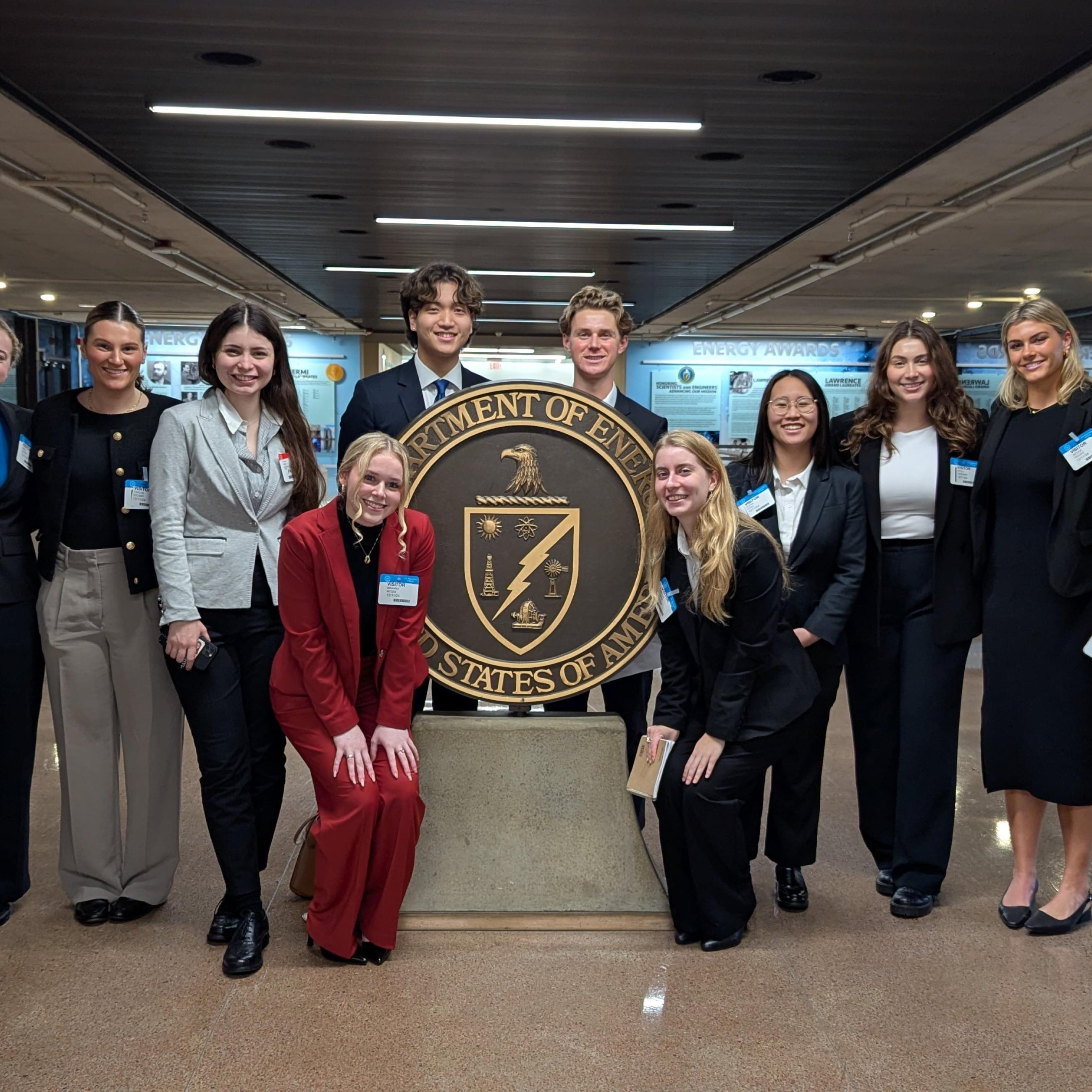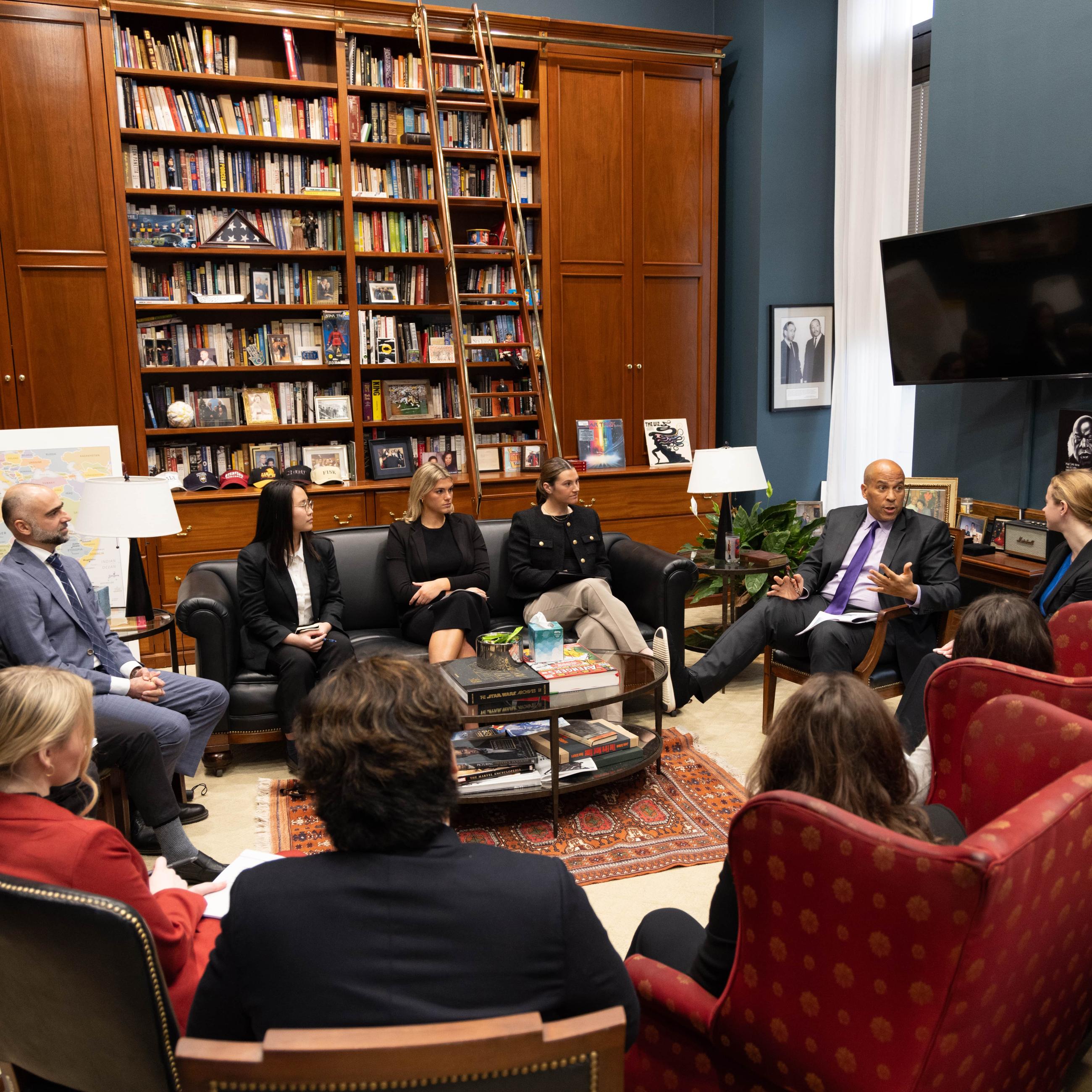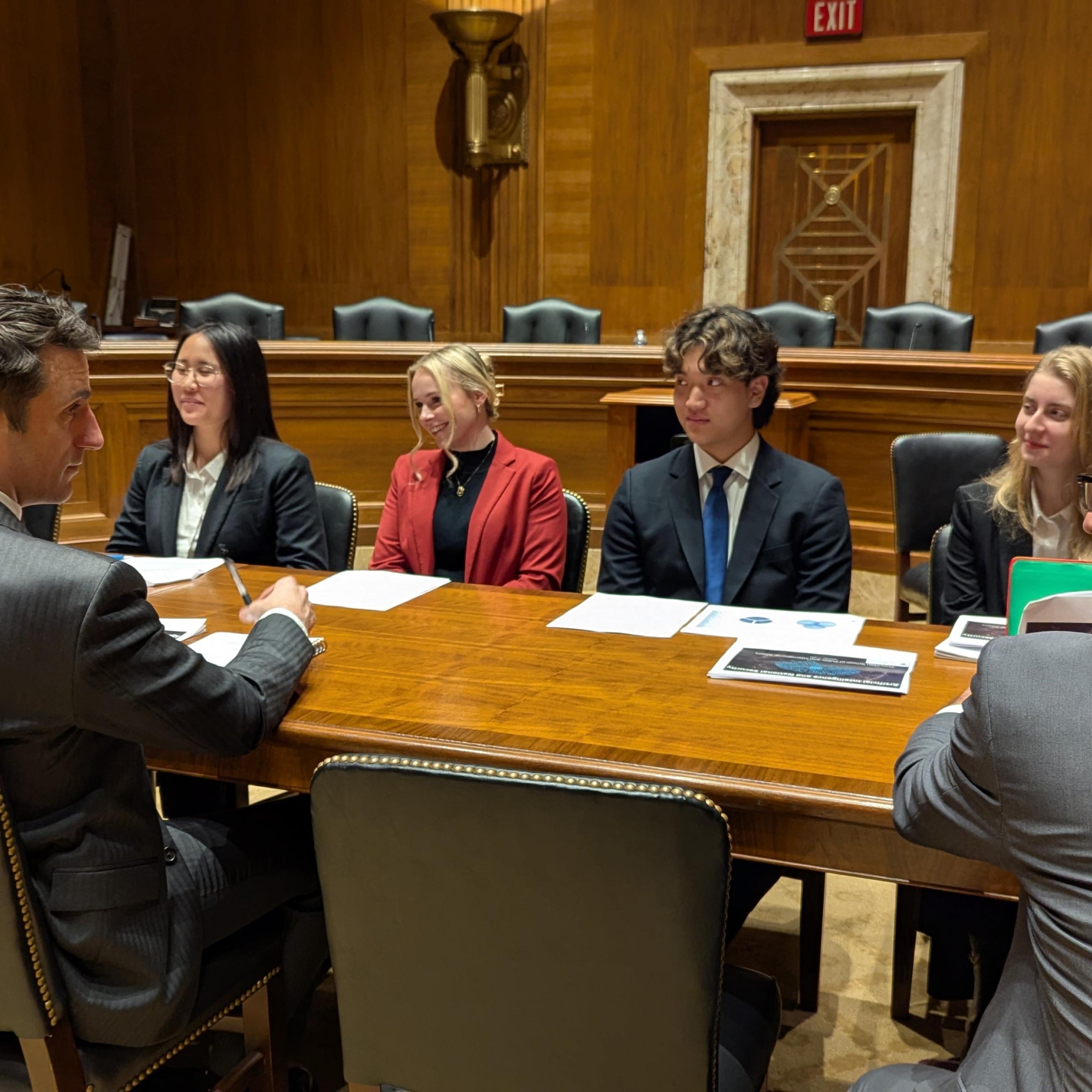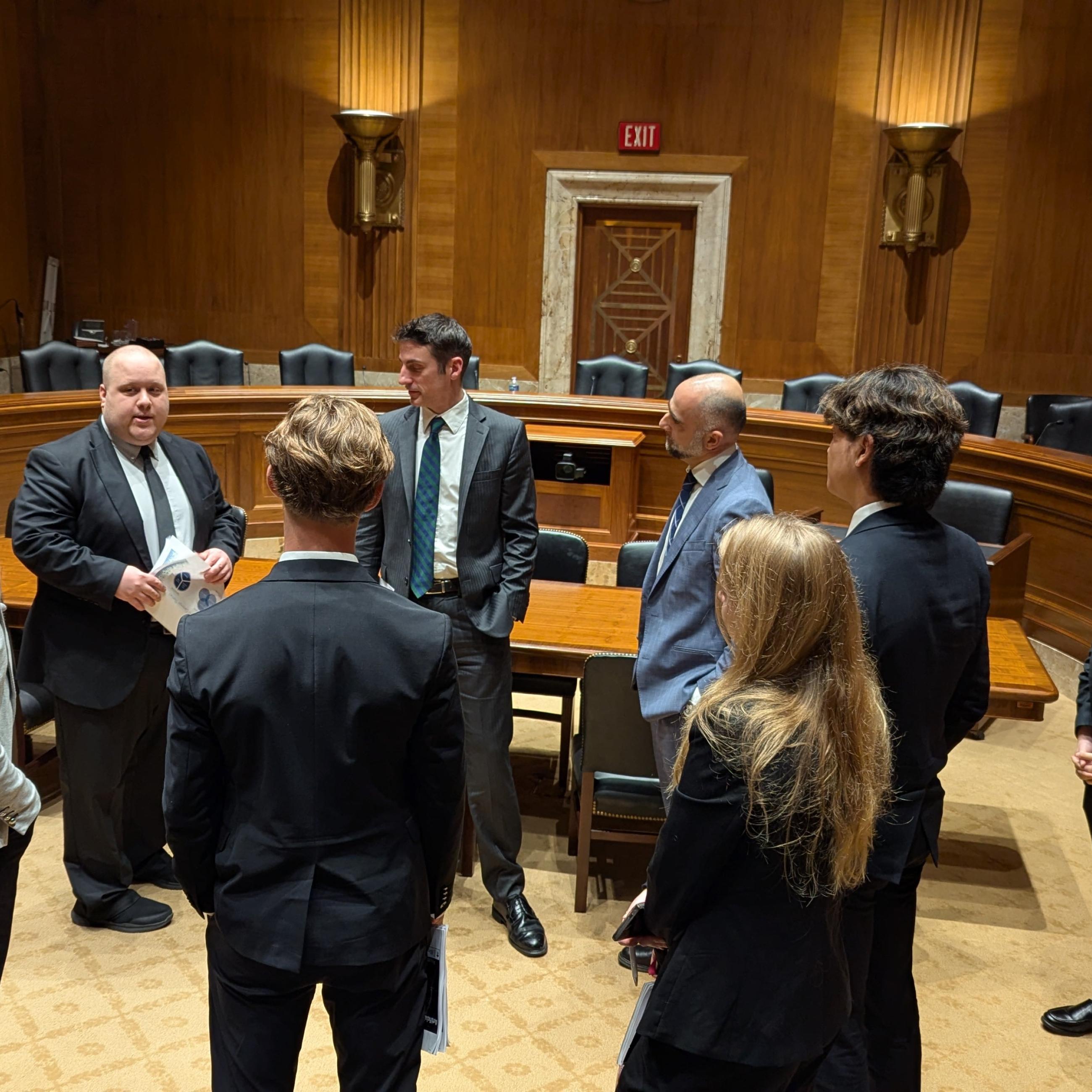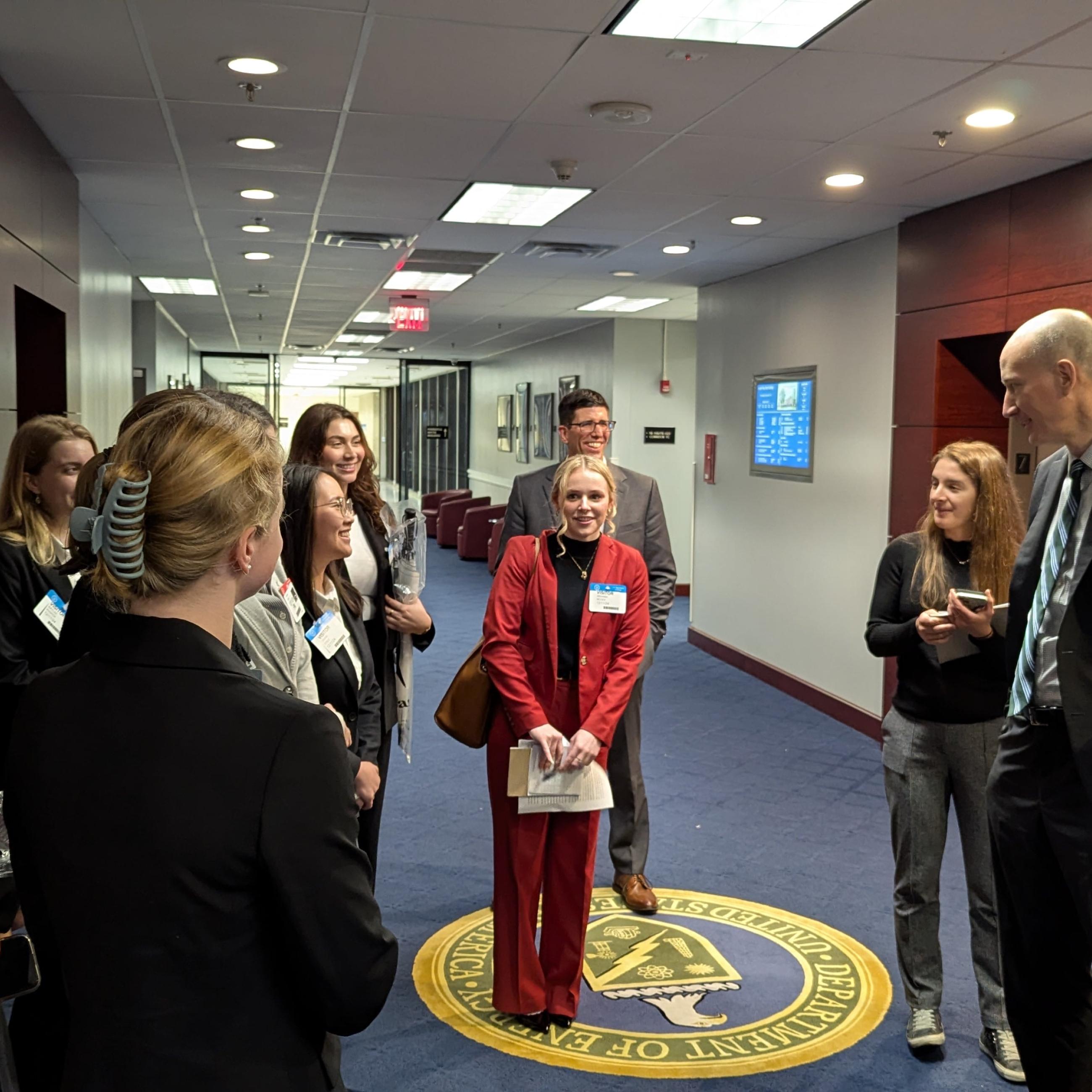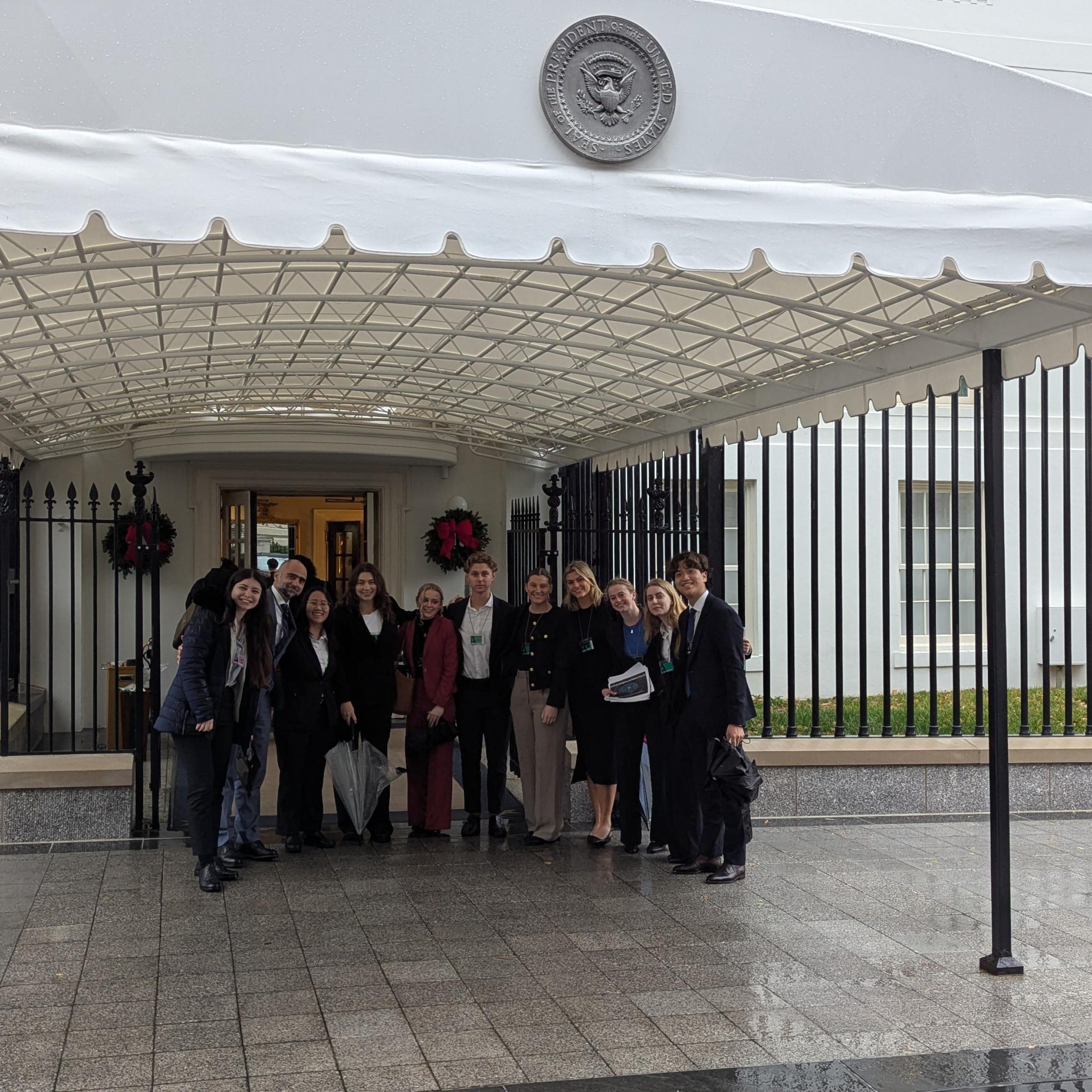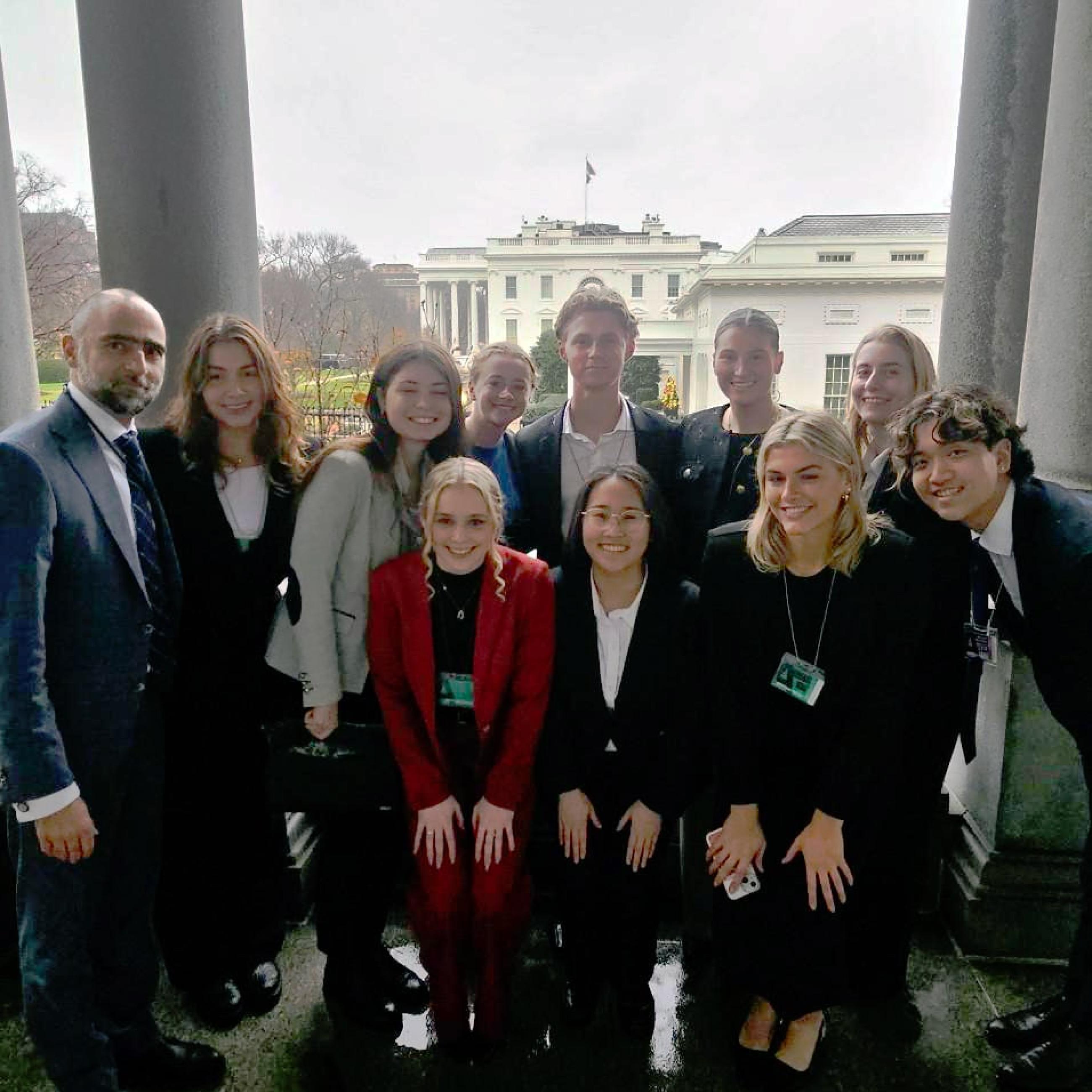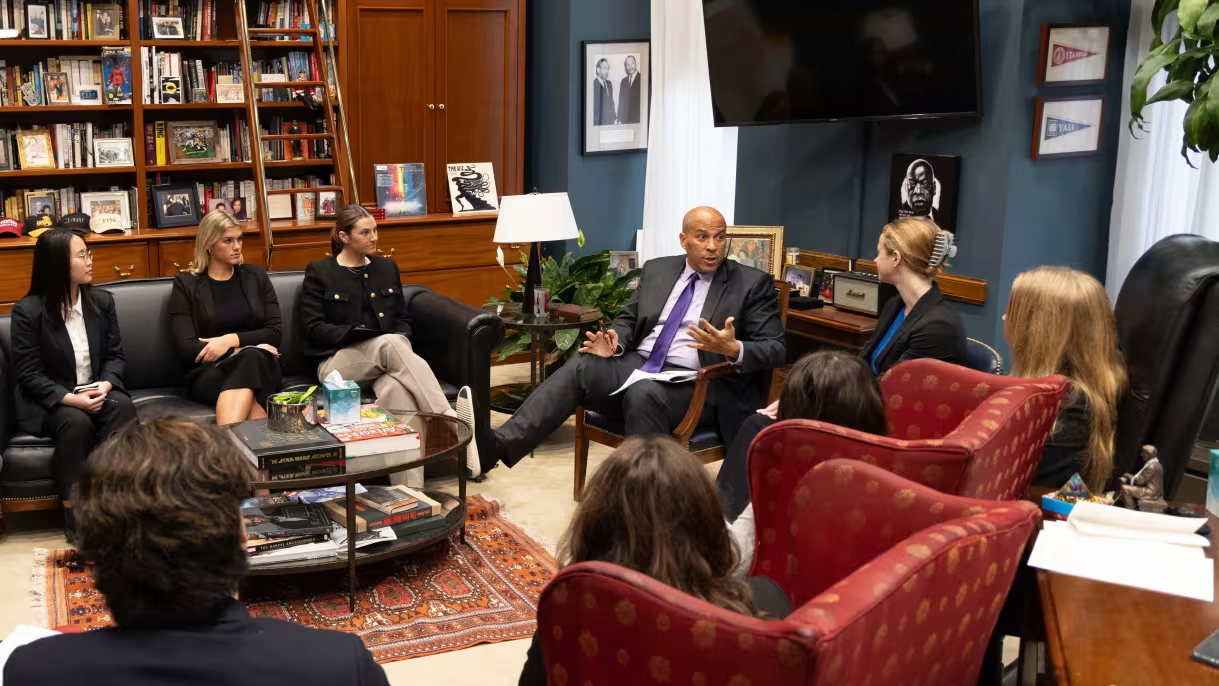

Students Brief Policymakers on Artificial Intelligence in First-Ever AI Task Force
While artificial intelligence may unlock unprecedented human potential in the coming years, it is also a forceful technology that is magnifying the threats society faces and posing thorny policy challenges for elected officials in Washington.
From increasingly complex cyber threats to the development of harmful biological agents, keeping Americans and U.S. businesses safe from potentially harmful effects of AI is no small order.
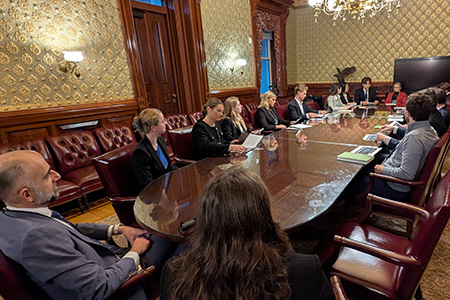 Juniors at the Princeton School of Public and International Affairs (Princeton SPIA) took these challenges head-on in the School’s first-ever AI Policy Task Force last semester. It was led by Ali Nouri, a lecturer at Princeton SPIA and a former deputy assistant to President Joe Biden, who has also held leadership positions on Capitol Hill and at the Department of Energy.
Juniors at the Princeton School of Public and International Affairs (Princeton SPIA) took these challenges head-on in the School’s first-ever AI Policy Task Force last semester. It was led by Ali Nouri, a lecturer at Princeton SPIA and a former deputy assistant to President Joe Biden, who has also held leadership positions on Capitol Hill and at the Department of Energy.
Policy Task Forces are a requirement for Princeton SPIA undergraduates and focus on pressing policy challenges, such as environmental justice or China’s rule of law. They present an opportunity for students to gain practical exposure to policy and international affairs.
“It’s one thing to think about these issues on a theoretical level at Princeton, but it’s a different thing when they’re actually in those buildings, sitting across the table from a Hill staffer or a senator,” Nouri said.
The AI course culminated in a day full of briefings on Capitol Hill, at the White House, and at the Department of Energy. Students presented their AI policy recommendations to leaders, including Sen. Cory Booker of New Jersey, focusing on three areas: cybersecurity, biological weapons, and misinformation campaigns.
The day began with a bipartisan meeting including staff members for Sens. Maria Cantwell (D-Wash.), Todd Young (R-Ind.), and Martin Heinrich (D-N.M.), as well as a representative of the Senate Appropriations Committee.
“The main issue that we landed on from our research this semester is that AI automates all kinds of attacks, so we must automate our defenses,” Brianna McGee ‘26 told them.
Justin Lee ‘26 explained how defensive AI tactics, such as training AI on digital networks related to the electrical grid, can help detect cyberattacks as they become more sophisticated and frequent.
To prepare for the briefings, the students had met with industry and government leaders in the AI space. That included guest lecturers from Nvidia, which makes the chips that fueled the AI revolution, and RAND Corporation, a leader in assessing national security opportunities and risks of AI.
The Hill staffers took interest in what the students learned from their meetings with the private sector.
McGee shared that many private companies, especially small businesses, do not have the resources to defend themselves against cyberattacks, and they are looking for Washington to help.
“At the end of the day, their goal is innovation, not to harm the American people,” she said.
The students had practiced responding to such off-the-cuff questions during mock briefings where they asked each other tough questions about the topics they had researched. These were inspired by the “murder boards” Nouri and his colleagues at the Department of Energy conducted to prepare nominees for Congressional hearings.
“I basically replicated that model with the students,” Nouri said.
Later that afternoon, they presented to leaders at the Department of Energy, including Helena Fu, the director of the Office of Critical and Emerging Technologies. The day ended with a visit to the Eisenhower Executive Office Building, where the students paused to take pictures in front of the White House before briefing members of the National Security Council and the Office of Science and Technology Policy.
Perhaps the most exciting moments of the day for the students were the unscripted ones.
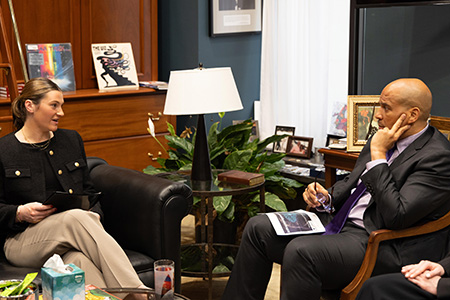 While at the Department of Energy, Deputy Secretary David Turk met the students by the elevators and stopped to chat, encouraging them to pursue careers in public service.
While at the Department of Energy, Deputy Secretary David Turk met the students by the elevators and stopped to chat, encouraging them to pursue careers in public service.
During what was supposed to be a quick photo opportunity with Sen. Booker, the students were invited to sit and spend 30 minutes discussing their work and the challenges of regulating AI. Booker sits on the Senate Judiciary Committee, which recently held a hearing on oversight of AI.
Booker explained that it’s difficult to pass policies in the technology space because the industry moves so quickly compared to the relatively slow process of lawmaking. He applauded the specific recommendations students had, such as expanding existing health privacy protections to genetic data, and encouraged them to stay involved in the space.
“The reality is this future is happening so quick, and it’s happening now,” he said. “It’s amazing that you’re thinking this stuff through. I would just encourage you to continue to try to lead in this space.”
Vivian Bui ‘26, who had briefed the senator on AI and disinformation, said that meeting with Booker was the day’s highlight.
“Getting to discuss with him directly about our recommendations that we worked so hard on was very cool,” said Bui, adding that the trip was “a really formative experience.”
The AI Task Force course included the following students from the Class of 2026: Vivian Bui, Adam Casler, Taylor Hyland, Ruxandra Iosif, Kaylee Kasper, Justin Lee, Brianna McGee, Emily Murphy and Nicole Woods. Kayla Yelensky was the Undergraduate Course Assistant and Michael Chapman served as the Graduate Student Consultant.


